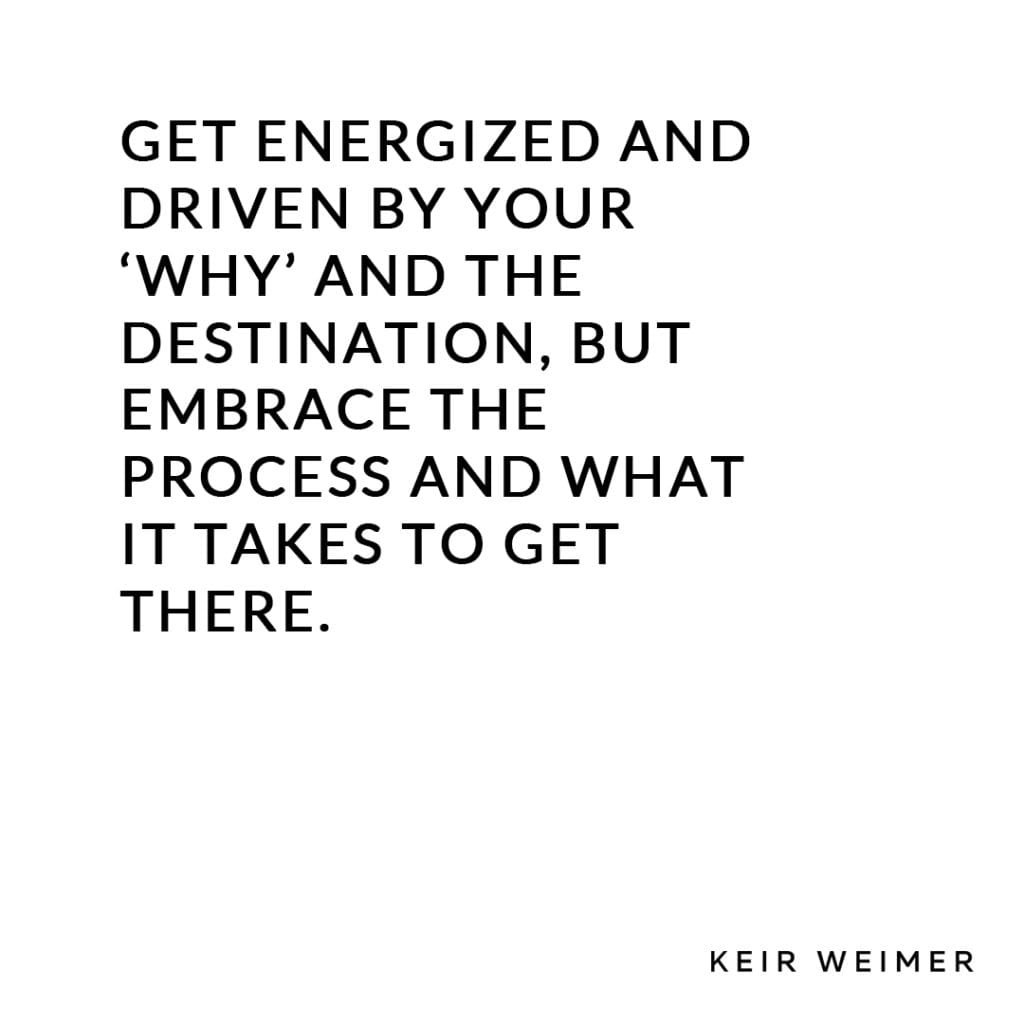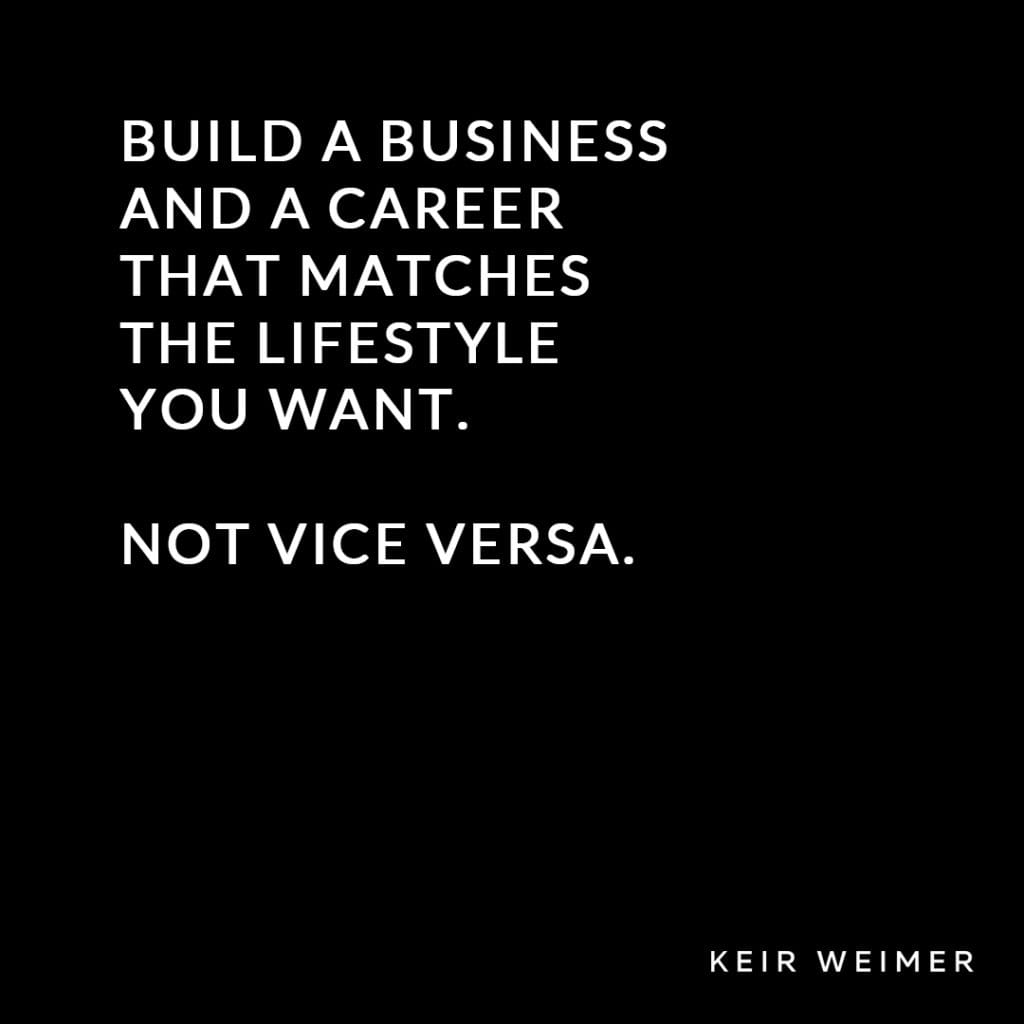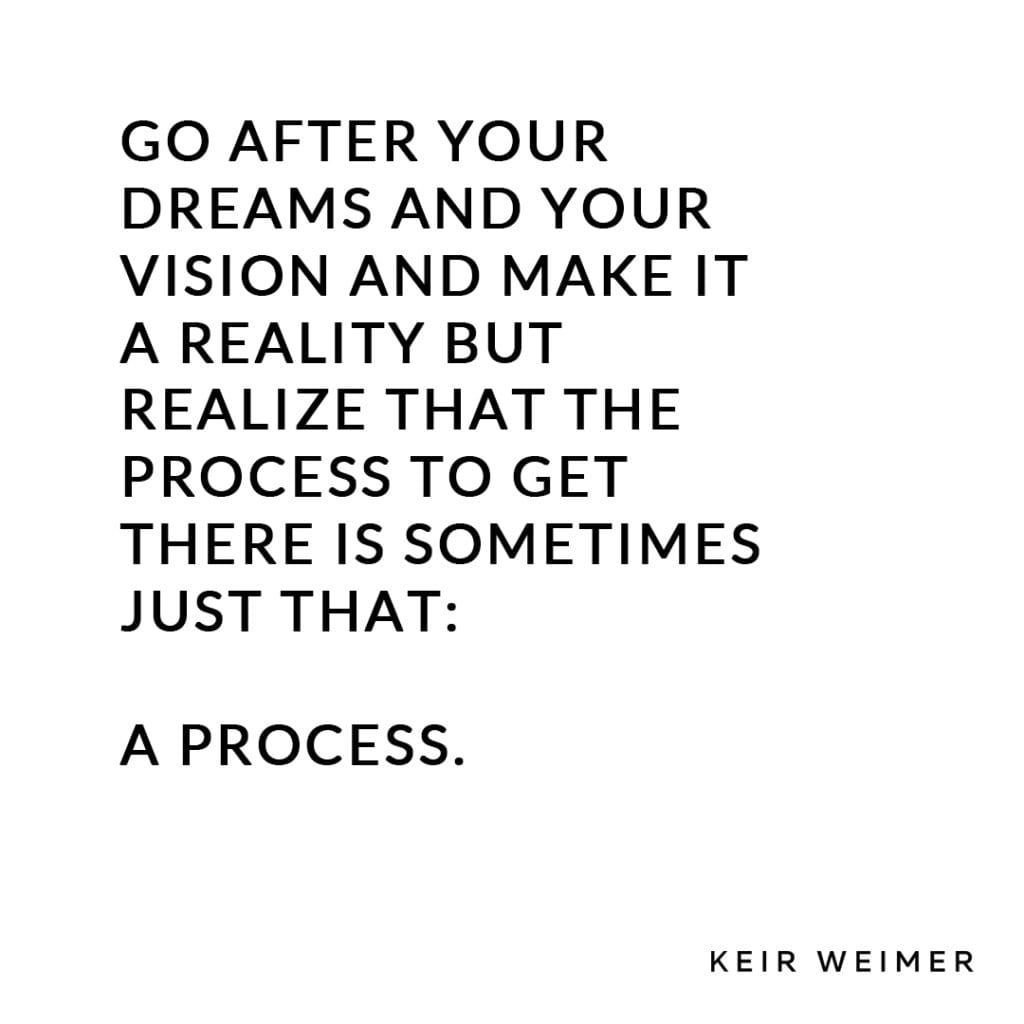Adapt, Survive and Thrive in the Coronavirus Crisis and Aftermath
Mindset is the number one thing we should focus on first when adapting, surviving and then hopefully thriving during a crisis like the Coronavirus crisis right now. This is the first stop, the first focus, the first thing we need to address, especially in this era of COVID. With the coronavirus coming out of seemingly left field. It’s changed everything, right? How we live, our schedules, being at home, and social distancing, and sequestering, and quarantining. Finding a way now to transact, to run our real estate business. To still work in it, not just on it, and find a way to advance and still grow. It’s challenging. It’s very easy to go down the rabbit hole of some of the doomsday predictions, the apocalypse talk, the end of time as we know it, right? With the market just really all kinds of volatility. Not knowing the full impact on the housing market yet. And seeing cases in this crisis, from a health standpoint, continuing to grow.
It can take a huge toll on our mindset, and our psyche, and our ability to stay productive and focused on what really matters and what moves the needle on our business. I want to give you a couple of strategies, tactics you can take away today, and really help you cultivate, and almost more importantly, maintain a positive and strong mindset. One that’s ironclad, resilient, so that you can persevere through the challenges of today in this crisis and anything else you might encounter in your business, in your life.
Why don’t we start there? The first one is this: the power of positive information and positive thoughts. I’m a firm believer… You probably heard this before, this quote, Tony Robbins often says it…”we’re the average of the five people we spend the most time with.” Our disposition, our mindset, our bank accounts. Our everything. It really is a function of our environment. So I want to encourage you to up level your environment, to level up on the information, the people and the things you’re putting into your mind, so that you can stay healthy and positive in this time when it’s really easy to dip down into the rabbit hole of negativity and doomsday and all the sensational headlines and everything else out there.
By that I mean be reading the right materials. Be safeguarding. Creating space in your life to do that. To listen to positive podcasts, inspirational people and quotes. Being on calls and Zoom calls with family and friends that support and uplift you. Not that scare and pull you down. We don’t want to feed anxiety and stress. We want to compartmentalize or leave that on the side. It’s okay to feel that and experience it. It’s very human and natural. But there’s a place for it. We can’t let it overtake us. Okay?
The next thing I want to talk about here, I’m referring to my outline, is really the importance of proper routines, running good habits. By that I mean specifically morning and evening routines. You’ve probably heard this a lot. Can’t stress it enough. My morning routine is typically about an hour and a half, sometimes two hours. It consists of exercise, reading The Wall Street Journal and other relevant headlines that are important to me, my life, and my business. Meditating, having the right supplements and the right breakfast, affirmations, journaling, gratitudes, planning my day, and reviewing my schedule. For this and for me, it really centers my day, right? It allows me to win the morning and win the day. It’s so important.
Now, a morning routine is only as strong as a good evening routine. So make sure you’re also putting space in your life to wind down from your work day, to unload. To decompress. Have a conducive sleep environment in your bedroom. Don’t be on screens. Right before you go to sleep and the hour before. Try to create time and space to read and enrich yourself. Maybe meditate and unwind. Lower your energy level. Try to not have caffeine after 3:00 PM or 4:00 PM in the day, so that your mind can rest and relax. And you can start to get better and deeper sleep, which will then go into a stronger morning routine.
I’m a firm believer that our outputs are directly dictated by our inputs. So the things that we put into our body and our mind. So our nutrition, especially now we have to be really intentional about what we’re eating. Are we hydrating enough? Are we staying away from high carbs and sugars that are spiking our energy and then causing us to crash? Really, really important. And exercise. Maintaining and creating a good exercise regimen is key to maintaining high levels of endorphins and energy throughout the day. I recommend doing that in the morning. But if you can’t, the evening is fine too.
Also, we have to get creative now when we sometimes don’t have access to our typical routine and equipment. A lot of free content out there, a lot of influencers with routines. Find a way to create space in your day and your week to exercise and eat well.
All right, now I want to talk about the next phase here, the next chapter here in this training, which is adapt. Right now a lot has changed. Just a few short weeks ago or months ago, this hit, and it changed our lives. This is unprecedented in terms of my memory. I mean, certainly many of us have been through disruptions. Had been through the Great Recession 10 years ago, 9/11, wars, natural disasters, Hurricane Katrina. Disruptions, right, to life and business. However, to this magnitude, few of us have witnessed this. It really is relatively uncharted territory.
So what we need to do is control the things we can control, and realize that the things we can’t, like the market, where this ends up, certain government initiatives, we’re going to have to trust that they will work themselves out. And back to the mindset piece, this too will pass. We need to stay focused on what we can control, and let go of everything else. And really stay positive and intentional, productive and mindful in what we can do now, so that we can grow and seize this opportunity and this time to really position ourselves and our business for success in the future once things do return to some semblance of a new normality.

Next is we want to find ways to implement technology into our business where we might not have before. Right now in many states, it’s different in terms of what we can do and how we can monitor a real estate business. It’s hard to actually work in our business right now. Many states, right? We’re not able to do showings, open houses. Social distancing continues and will for several weeks, if not months. So we have to find creative ways to still transact, connect with our clients and customers, and move our business forward.
To do that, we recommend using simple technology that’s either free or very low cost, such as Facebook Video, Skype, WhatsApp Video, and Zoom. Zoom is really popular now. It’s a great way to connect with customers, clients, obviously family and friends, colleagues and teammates, and still do business.
Great example. The other day, we were able to secure a close to million dollar listing on a virtual Zoom listing appointment with a client that lives in Florida, looking to sell a waterfront property in upstate New York in the Adirondacks on a lake. We had a great meeting. We provided a solution that was based in safety, end to end service, quality marketing, and results, where she didn’t even have to come up to a hot zone, had to deal with the stress and anxiety of preparing a property for a shoot and a sale and showings. We’re taking care of all of it. That keeps her safer, it keeps us safer, and we become the experts that can handle this sale. All done by never meeting her, a virtual listing appointment by Zoom, and we’re able to continue to grow our listings. That can be done.
I encourage you to implement this technology. You can use it on a laptop, on a phone. Again, it can be used on the buy side as well. So if you’re having trouble conducting showings or getting people’s comfort levels to go out and tour homes, you can take them with this nifty device, right, on virtual tours. FaceTime, Facebook Video, you can take them on Zoom or Skype. Show them through the house, take them through it, talk to them about the unique selling features, et cetera. It’s safe, it’s virtual, it’s still impactful.
Again, another way to do that is Matterport technology, 3D technology that creates immersive experiences in a home. We do that to really highlight, list, and present homes in a unique way. Sometimes doubles and triples page view time, lots of better conversion, and a virtual tour and experience if somebody is on any device across the world, and can’t make it to the house. Implement technology so that you can help facilitate working in your business and transacting.
Now, also, we want to put safety first. Remember safety of obviously our family and friends, our teammates, our clients, and our customers first. So abide by federal, state, and local regulations and recommendations here in this time of crisis. Then after things settle, what is the new normal? There will be new rules written.There will be new precautions, there will be new norms and different regulations. That will start to guide how we handle things moving forward. In the real estate space, in how we handle maybe a potential future epidemic or pandemic. Because this won’t be the last time this happens.
We also want to really be a thought leader for our audience on social media, for our prospects, for our customers and clients, for our community and our household. By that I mean get out there and be a part of the conversation. Be doing Facebook lives, Instagram stories, a video email right into your database, a blog post. Do this regularly, several times a week.
Get into the conversation, so that we’re not reactive. We’re not pulling back. We’re not shrinking under the responsibility and the scarcity mindset, but we’re out there. We’re disseminating information, we’re interpreting what these new regulations, this new stimulus bill means for the economy and the housing market, right? What some of the new regulations mean for buyers and sellers. What do these historically low rates mean for debt access. In the capital markets and the mortgage market. What does this mean in layman’s terms. For your customers and clients. It’s important for you to be a thought leader out there, interpreting this, breaking it down into key thoughts and takeaways. And finding ways to add value with knowledge and thought leadership. Really, really critical now.
Now I want to talk about some key tactics on how to survive. Before we can thrive, we have to survive, right? And make sure that we don’t burn out or we don’t actually get pushed out of this industry. Because in times of dip, pull back, and recession, the number of realtors falls considerably in our economy, at least historically. At the Great Recession, we lost hundreds of thousands of real estate agents, because they couldn’t make it. They couldn’t innovate and pivot their business. They couldn’t find new ways to lead generate and sustain an income.
We want to make sure that doesn’t happen to you. So couple of quick tactics on how to do that. One, we want to start with our cost structure. We want to examine our expenses, and see with a fine-tooth comb, what can we cut. What’s not essential, what’s not producing direct revenue and ROI? Also, where can we reallocate. From things that are maybe underperforming and underproducing, Where can we reallocate that? If we’re not spending as much time in the car and gasoline, or on dinners and taking people out in our network, let’s move that to a couple of the lead gen sources that aren’t working. So that we can survive and double down on those what is working, and eliminate what’s not.
We also want to, again, evaluate probably the last 6 to maybe 10 transactions. Your closings. And see where did they come from. Was it direct mail? Was it other print advertising? Was it social media campaigns? Organic? Was it referral, farm, sign, print? What was it? Let’s see what the attachment associated budget was for that. We want to cut and eliminate the ones that aren’t producing, underperforming, and we want to double down and increase the spend on those that are. This is called identifying the winners or the stallions, and cutting or eliminating the losers or the ponies. We need to constantly be doing this at least twice a year, ideally quarterly, and then a minimum once a year. Okay?

Next up we want to really look at getting back to the basics of lead gen. The things we did early on in our career. The low-hanging fruit, the low cost, high impact, ways to generate business, buyer and seller leads and appointments, now. Today. To do that, we always recommend starting with your network. You’ve probably heard this. Starting with the people you know, past clients. Current clients, friends, family, acquaintances, anybody in your database. We want to then go one step further and identify those, what we call, super connectors. We teach this, a targeted strategy for developing relationships and referral, inbound referral sources from super connectors in your community and network.
By that I mean accountants, lawyers, certified financial planners, people with access to a large network and Rolodex of your ideal clients. Then we want to get creative and develop a value add strategy that can position you as the thought leader. To that super connector.
That could be a newsletter. That could be something where you’re interpreting what the new stimulus bill means for those clients. What do the lower interest rates mean? What are some of the low cost programs and access to new debt mean for small businesses, for consumers, for the housing market. Interpreting that, breaking it down, and dissecting it in a newsletter, a virtual training, and eventually an event in person can be a great value add tool. Not only does it position the super connector as somebody who is very connected and diverse, and bringing in experts, right, in their fields. They can help educate and empower their clients. But it does just that, it educates and empowers their clients. Which does what? When they need to buy, sell, or invest, that super connector is going to be recommending you.
We have a couple of these relationships that produce several leads every year. Okay? It’s a great low cost strategy. You just have to have a little bit of creativity in the content creation and in the outlet strategy. Okay?
Next up, it’s the organic content strategy and social media, and then the low cost spend or boost strategy. Meaning developing a content strategy that is really just focused in adding value, answering the pain points, addressing the fears, responding to the motivations and the desires of your ideal client. It’s going to attract them to you. It’s going to position you as the expert. The sympathetic, and empathetic, and conscientious thought leader and broker who’s really there to help them, right, in this process. You can do that organically with no spend. Again, Facebook live, Instagram, your feed, your posts, your email list, your blog, your website, et cetera.
If you want to produce a little bit more impact and impression result and inbound direct response, attach a small budget to it. Boost it to a targeted audience. Make sure you have a great hook. A good headline that makes sense, it speaks to a pain point. Good copy and a good image. High quality image. And every ad pushes some call to action. Reach out for this free report. Go to this website for a free home evaluation if you’re a seller in a custom marketing plan. Contact me so I can tell you what these lower rates mean, and new products that are available to you that you might not be aware of. Get creative. Social media is a great way to connect with people. Very low cost. It just takes a little bit of creativity and confidence to get in front of the camera.
Lastly, let’s work our network. Like I mentioned again. It’s past and current clients. It’s calling them, it’s emailing them, it’s adding value, and seeing how they are. It’s placing safety first. And it’s finding a way to connect and then ask for the business, because we don’t get what we don’t ask for.
We’re all struggling just like every other business is right now. But we will survive. Because we’re tenacious, we persevere, we don’t give up. We go after it, we add value, and we continue to grow and find ways to evolve and work through this. People won’t phone you for that. You don’t get what you don’t ask for. You have to be confident and you have to go after this, okay? It’s really, really important now.
Now I want to talk about thrive. Because we don’t simply want to just survive, we want to thrive in this era, right? We want to elevate and grow our brand, and our income, and our impact as real estate agents, so that we can emerge from this crisis, this challenging time, stronger and better for it. Because I hate to say it, but if you think that we’re going to go back to how we were before and how the life in the real estate business and market was before the coronavirus hit, right, in early 2020, I don’t think that’s going to happen. I think you’re going to be very disappointed, because things will never be the same. We have a new way of living now. We’re going to have a new way of transacting and doing business. This will have a lasting ripple effect for not just quarters and months, but years, arguably. So we need to find ways now to thrive, to stand up, to adapt and pivot, so that we can come out of this stronger.
Here’s a couple of quick tactics to do that. I really believe that right now we have more time at home. I’m not saying it’s easy. We have kids. Small kids especially makes it challenging. Safeguarding time can be challenging. However, we do have more time. We need to create that time and that space, and protect it and invest in ourselves now. Because there has never been a better time since the Great Recession or perhaps arguably before, where we can invest in our knowledge, our skills, both soft and hard, and our ability to transcend this. To elevate and to position ourselves for growth and success in the next chapter.
So I encourage you to invest in yourself, the capital, the time, the resources now to do the work. Because it’s a great time to work on your real estate business. Not just in it. Where we slow down on working in it, we’re still going to find ways to transact, that we just talked about, and move the needle forward. Now’s a great time to work on it too. That idea of slowing down so that we could speed up later is really important.
If you’ve been thinking about implementing that system and process. That backend thing that’s going to help you do more with less. If you’ve been thinking about new technology, new CRM, social media calendar, whatever it is. That course. Doubling down, working with a real estate coach or a real estate trainer. Now is the time. We need to seize this opportunity and time to do just that, so that we can elevate.
Next is if you’re thinking about, again, a certain technology, I’d encourage you to do it on a low cost, high impact basis. A technology that can help you in your business, the virtual video, right? Video email with BombBomb, for instance, is a great tool that we use and love. And other ways to develop and increase your relationship capital. And do it with technology when you can’t always be in person. Video is the best way to do that. And social media is a great way to connect with your clients as well, before you have a direct appointment where you would then leverage something like Zoom, Skype, Facebook Video, WhatsApp, or one of those other video messaging and meeting apps.
Again, we also want to ask ourselves, who do we want to become in this next chapter. When this is all over and said and done. What life do we want to live? What does it look like? What does our business look like? We need to ask ourselves these questions. Then we need to step into action, which we’re going to talk about in a second, take action. Because we need to develop a game plan with ironclad, strong improvement strategies underpinned by tactics. Things that we can do daily, so that we can actually make that vision of our life, and our business, and ourselves, a reality. Not simply just a fleeting vision and goal. So we’re going to talk about that as well.
Again, that game plan and strategy is so critical to be developing, and articulating, and formulating it now, when we have a little more time, when we’re able to slow down a little bit to work on the business and not just in it. Now is the time to do that work.
Lastly, I want to talk about taking action. The best ideas are just ideas if they’re not followed and underpinned with action. Meaning consistent, aggressive daily action. That’s what produces results. That’s where the top agents excel. That’s where you see the top producers. The top 10% of agents really produce sometimes as much as 90% of the income. It’s like the perennial principle, the 80, 20 to the next level. We see that in many markets, because they’re willing to do the work and they take action on the right activities. The right strategies, the right things that actually make a difference. And they eliminate and outsource everything else. Automate, delegate, and eliminate. That whole idea of leverage.
I hope you’ll take this time. I hope this training resonated. I hope you get something out of it. Again, I put it together quickly, but impactfully, so that I could come to you in a time of crisis, in a time of need. Give you some quick tactics of wins to help you move your business forward, right? To work in it effectively now, and also on it to position and set you up for the future, so that you can emerge from this stronger.





